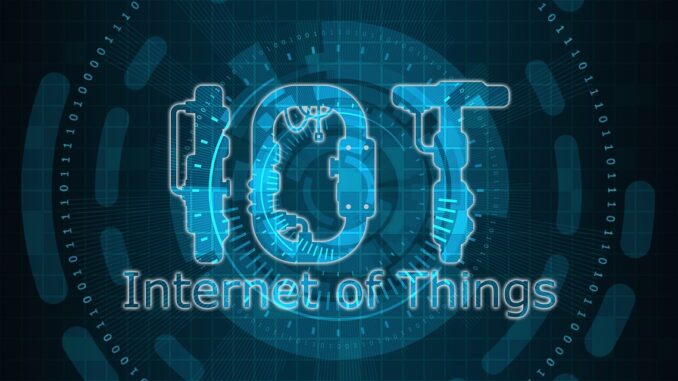
IoT has been a buzzword for the last couple of years and It is changing the very way of our life and the world around us. Do we use IoT in Electric Vehicles?
Today in this article we will be discussing,
- What exactly is IoT?
- How IoT is shaping our present and the future?
- How IoT can help in creating solutions for the EV charging issues?
What Is IoT?
The Internet of Things, or IoT, refers to the billions of physical objects connected to the internet, collecting and exchanging data throughout the world. Basically, we can turn anything into an IoT device and all you need is a cheap microcontroller and some kind of connectivity (Bluetooth or wifi).
From a table lamp to a jet, everything is becoming a part of the Internet of Things these days. Connecting all of these diverse things and attaching sensors to them gives machines a level of digital intelligence, allowing them to convey real-time data with each other without human involvement.
The Internet of Things or IoT is bringing the digital and physical worlds together to make the world around us smarter and more responsive.
Examples of IoT
As I have already mentioned anything can be turned into an IoT device. It can be your child’s toy or an autonomous truck or even a smart trash can that would open its lids when you are near the can.
How Does IoT Work
Let us take the case of a smart light bulb. With the help of a microprocessor and a Bluetooth module, we can control this lamb using our smartphone and switch it on or off automatically.
If we want to make it even complex, write an additional programme and the system will learn your behavioural pattern and adjust the timing accordingly(This requires a considerable amount of technical expertise).
IoT and Electric Vehicles
As I have mentioned earlier modem electric vehicles are the perfect integration of all the technologies we have ever developed. Our modern electric cars depend upon IoT systems heavily.
Modern electric cars will have several sensors mounted on several areas in the car and those sensors will collect numerous real-time data. The data collected will be then analysed using complex machine learning algorithms and insights will be derived.
The information derived from the data can be used for,
- Enhancing the drive comfort.
- Increasing the range.
- Design autonomous cars.
- Increase the charging speed.
Now you might be wondering how IoT can do all these things to your electric car.
Consider two persons Ted and Jake. Ted is an architect thus he will be either at home or at sight most of the time and he charges his car from home mainly and the range he covers on a typical day is, let’s say 40 miles over 3 hours.
Whereas jake is a travelling salesman and he depends on public charging stations in hotels to charge his car. He covers 250 miles on a typical day over a period of 8 hours.
Though the cars are the same model, they are exposed to different driving conditions. Engineers at the factory can improve the performance of the car based on the data collected according to the different driving patterns they undergo.
Now that we know the importance of IoT in electric vehicles let us take a look at how IoT can help in the charging station problem.
The Era Of Smart Charging Stations
The need for smart charging stations is increasing as the market expands. Most electric car fueling stations today are dispersed and have a complicated structure. This makes them difficult to operate and maintain.
EV charging stations must be open at all times since customers charge their cars using an app but if a station goes offline unexpectedly, it must be repaired as soon as possible. Furthermore, data transmission is a flaw, as essential, information is not provided in real-time.

Client-facing EV Charging Analytics: IoT-Enabled Apps
Drivers can simply find a local charging station and plan a time to fill up using the IoT-powered charging applications. The app alerts you whether the station is available and allows you to reserve it when you need it. Furthermore, there are several variables to consider, such as the exact charging time, weather conditions that may impact charging times, cable location, and so on. The IoT-powered software analyses the data, allowing customers to see all real-time information regarding charging procedures.
EV Charging Management Platform on the Cloud
The MSTS. IoT platforms may also provide a complete solution for complicated EV charging station control, consumption, and administration. MSTS. IoT links and controls a variety of dispersed engineering equipment in a single network. The platform has an adaptable cloud architecture, allowing users to add private, public, or hybrid cloud storage as needed.
Advanced data analytics systems gather and analyse data obtained from numerous devices before presenting it in a user-friendly format. In the event of any difficulties or modifications, the MSTS. IoT platform quickly notifies the appropriate users. Furthermore, a built-in geo-engine makes it simple to monitor and control dispersed devices.
MSTS.IoT for Electric Vehicle Charging Stations
MSTS.IoT may also be used to make electric vehicle (EV) charging stations more intelligent. It connects charging stations and provides a user-friendly platform for simpler maintenance and administration of charging equipment and fuelling operations. Station owners, local service providers, worldwide equipment vendors, and electric vehicle drivers may all collaborate on the platform.
Conclusion
EV charging stations are becoming more efficient and convenient due to IoT technology, for drivers, and service employees. Electric vehicle charging stations can be readily monitored and managed with MSTS.IoT. The technology links scattered EV stations, making it easier for drivers, charger suppliers, local service businesses, and station owners to interact and pass on real-time information.
EV-specific IoT solutions can bring forth more and more comfort and convenience to electric vehicles. The technology is growing rapidly, and the electric vehicle industry is an ideal platform for practical IoT systems.